AUDEN, Wystan Hugh (1907-1973). Autograph manuscript journal and notebook, 30 August - 26 November 1939 (chiefly September and early October), autograph title 'Journal August 1938 [sic]', in pen and pencil, many passages lightly cancelled in pencil (?after copying), written primarily on rectos, the facing blanks often used for aphorisms, quotations, reading notes, metrical experiments and other fragmentary lines, the last c.20 leaves almost entirely verse drafts, quotations and records of popular phrases, the verse including drafts and sketches for at least eight sections of 'New Year Letter', as well as unpublished material, 93 leaves, 4to (258 x 198mm) , plus a few blanks, in a notebook (label of 'Eye-ease paper ... "Easy on the Eyes"'), cloth-backed boards.
AUDEN, Wystan Hugh (1907-1973). Autograph manuscript journal and notebook, 30 August - 26 November 1939 (chiefly September and early October), autograph title 'Journal August 1938 [sic]', in pen and pencil, many passages lightly cancelled in pencil (?after copying), written primarily on rectos, the facing blanks often used for aphorisms, quotations, reading notes, metrical experiments and other fragmentary lines, the last c.20 leaves almost entirely verse drafts, quotations and records of popular phrases, the verse including drafts and sketches for at least eight sections of 'New Year Letter', as well as unpublished material, 93 leaves, 4to (258 x 198mm) , plus a few blanks, in a notebook (label of 'Eye-ease paper ... "Easy on the Eyes"'), cloth-backed boards. AUDEN IN SEPTEMBER 1939. Auden begins the journal, one of only three he is known to have kept, as 'a discipline for my laziness and lack of observation' on his return to New York from California after 'the eleven happiest weeks of my life' in the honeymoon period of his relationship with Chester Kallman. He opens with a brief inventory of his present state: 'At 32½ I suppose I shall not change physically very much for some time except in weight which is now 154 lbs ... I am happy, but in debt ... I have no job. My visa is out of order. There may be a war. But I have an epithalamion to write and cannot worry much'. Inevitably, the early pages are written in the shadow of the impending outbreak of the war in Europe, and include a substantial narration (running to 8½ pages) of his activities and preoccupations on 1 September 1939, which sheds light on the composition and content of his famous poem of the same name: 'Sept 1st. Woke with a headache after a night of bad dreams in which C[hester] was unfaithful. Paper reports German attack on Poland ... 6.0 pm. Benjamin [Britten] and Peter Piers [sic] came to lunch. Peter sang B's new settings of Les Illuminations and some H. Wolf ... which made me cry. B played some of Tristan which seems particularly apposite today. Now I sit looking out over the river. Such a beautiful evening and in an hour, they say, England will be at war ... 10.30 Went to the Dizzy Club. A whiff of the old sad life. I want. I want. Je ne m'occupe plus de cela. Stopped to listen to the news coming out of an expensive limousine' 'Sept 3rd. War declared this morning at 7 a.m. Listened in the afternoon to a broadcast of the first 1½ acts of Tristan. Everyone very kind, some rather drunk. The frogs sang all night. We sang spirituals out on the lawn'. Auden is perhaps not a natural diarist -- the journal is always more preoccupied with thoughts and reflections rather than activities and observations, and in the latter pages takes on rather the character of a commonplace book or verse notebook; nevertheless, it reveals much about the poet's associations at this pivotal period of his life (including with Kallman, George Davis, Gerald Heard, Archibald MacLeish, and others), his reading (Milton, Laura Riding, Flaubert), the importance to him of music (especially Wagner), his drinking, smoking and consumption of Benzedrine and Seconal, his dreams (including one of having a wasp down his trousers) and his intellectual preoccupations, including reflections on fascism/communism, sex, marriage ('One wants marriage ... so that one does not feel abandoned. Apart from that one takes what is handy'), Thomas Mann, the Founding Fathers, science and medicine and much else. The journal is also a rich fund of typically idiosyncratic aphorisms and observations: 'All the great heretics Pascal, Rousseau, Lawrence, Kafka etc have been sick men'; 'Mean like the American habit of washing one's hands after pissing, as if the penis were an object, too filthy for any decent person to touch; 'All bureaucrats should be obliged to prove that they have a happy love-life, and immigration officials most of all'; 'Tried to read Milton's Apology for a Pamphlet but couldn't. The adjectives are
AUDEN, Wystan Hugh (1907-1973). Autograph manuscript journal and notebook, 30 August - 26 November 1939 (chiefly September and early October), autograph title 'Journal August 1938 [sic]', in pen and pencil, many passages lightly cancelled in pencil (?after copying), written primarily on rectos, the facing blanks often used for aphorisms, quotations, reading notes, metrical experiments and other fragmentary lines, the last c.20 leaves almost entirely verse drafts, quotations and records of popular phrases, the verse including drafts and sketches for at least eight sections of 'New Year Letter', as well as unpublished material, 93 leaves, 4to (258 x 198mm) , plus a few blanks, in a notebook (label of 'Eye-ease paper ... "Easy on the Eyes"'), cloth-backed boards.
AUDEN, Wystan Hugh (1907-1973). Autograph manuscript journal and notebook, 30 August - 26 November 1939 (chiefly September and early October), autograph title 'Journal August 1938 [sic]', in pen and pencil, many passages lightly cancelled in pencil (?after copying), written primarily on rectos, the facing blanks often used for aphorisms, quotations, reading notes, metrical experiments and other fragmentary lines, the last c.20 leaves almost entirely verse drafts, quotations and records of popular phrases, the verse including drafts and sketches for at least eight sections of 'New Year Letter', as well as unpublished material, 93 leaves, 4to (258 x 198mm) , plus a few blanks, in a notebook (label of 'Eye-ease paper ... "Easy on the Eyes"'), cloth-backed boards. AUDEN IN SEPTEMBER 1939. Auden begins the journal, one of only three he is known to have kept, as 'a discipline for my laziness and lack of observation' on his return to New York from California after 'the eleven happiest weeks of my life' in the honeymoon period of his relationship with Chester Kallman. He opens with a brief inventory of his present state: 'At 32½ I suppose I shall not change physically very much for some time except in weight which is now 154 lbs ... I am happy, but in debt ... I have no job. My visa is out of order. There may be a war. But I have an epithalamion to write and cannot worry much'. Inevitably, the early pages are written in the shadow of the impending outbreak of the war in Europe, and include a substantial narration (running to 8½ pages) of his activities and preoccupations on 1 September 1939, which sheds light on the composition and content of his famous poem of the same name: 'Sept 1st. Woke with a headache after a night of bad dreams in which C[hester] was unfaithful. Paper reports German attack on Poland ... 6.0 pm. Benjamin [Britten] and Peter Piers [sic] came to lunch. Peter sang B's new settings of Les Illuminations and some H. Wolf ... which made me cry. B played some of Tristan which seems particularly apposite today. Now I sit looking out over the river. Such a beautiful evening and in an hour, they say, England will be at war ... 10.30 Went to the Dizzy Club. A whiff of the old sad life. I want. I want. Je ne m'occupe plus de cela. Stopped to listen to the news coming out of an expensive limousine' 'Sept 3rd. War declared this morning at 7 a.m. Listened in the afternoon to a broadcast of the first 1½ acts of Tristan. Everyone very kind, some rather drunk. The frogs sang all night. We sang spirituals out on the lawn'. Auden is perhaps not a natural diarist -- the journal is always more preoccupied with thoughts and reflections rather than activities and observations, and in the latter pages takes on rather the character of a commonplace book or verse notebook; nevertheless, it reveals much about the poet's associations at this pivotal period of his life (including with Kallman, George Davis, Gerald Heard, Archibald MacLeish, and others), his reading (Milton, Laura Riding, Flaubert), the importance to him of music (especially Wagner), his drinking, smoking and consumption of Benzedrine and Seconal, his dreams (including one of having a wasp down his trousers) and his intellectual preoccupations, including reflections on fascism/communism, sex, marriage ('One wants marriage ... so that one does not feel abandoned. Apart from that one takes what is handy'), Thomas Mann, the Founding Fathers, science and medicine and much else. The journal is also a rich fund of typically idiosyncratic aphorisms and observations: 'All the great heretics Pascal, Rousseau, Lawrence, Kafka etc have been sick men'; 'Mean like the American habit of washing one's hands after pissing, as if the penis were an object, too filthy for any decent person to touch; 'All bureaucrats should be obliged to prove that they have a happy love-life, and immigration officials most of all'; 'Tried to read Milton's Apology for a Pamphlet but couldn't. The adjectives are

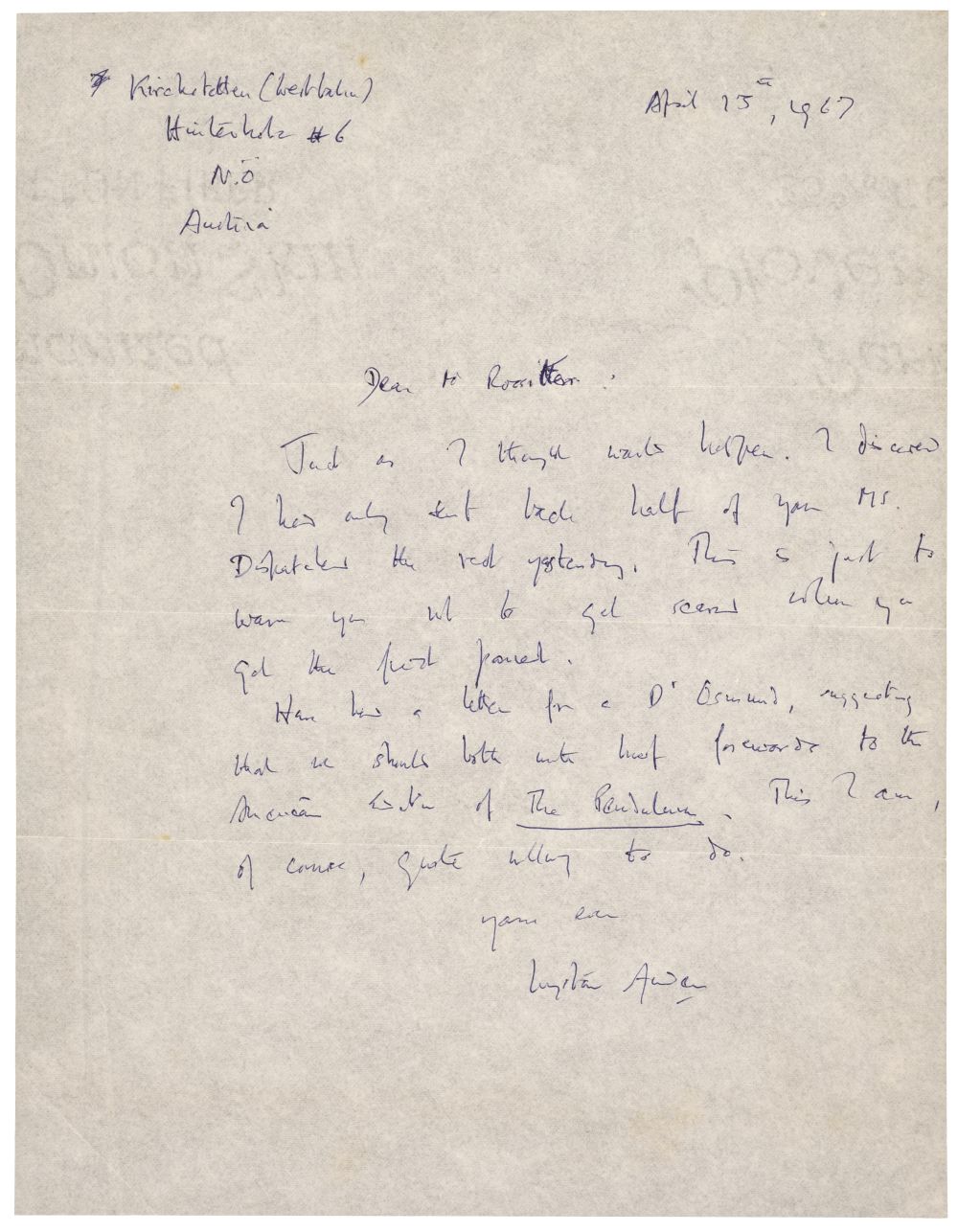
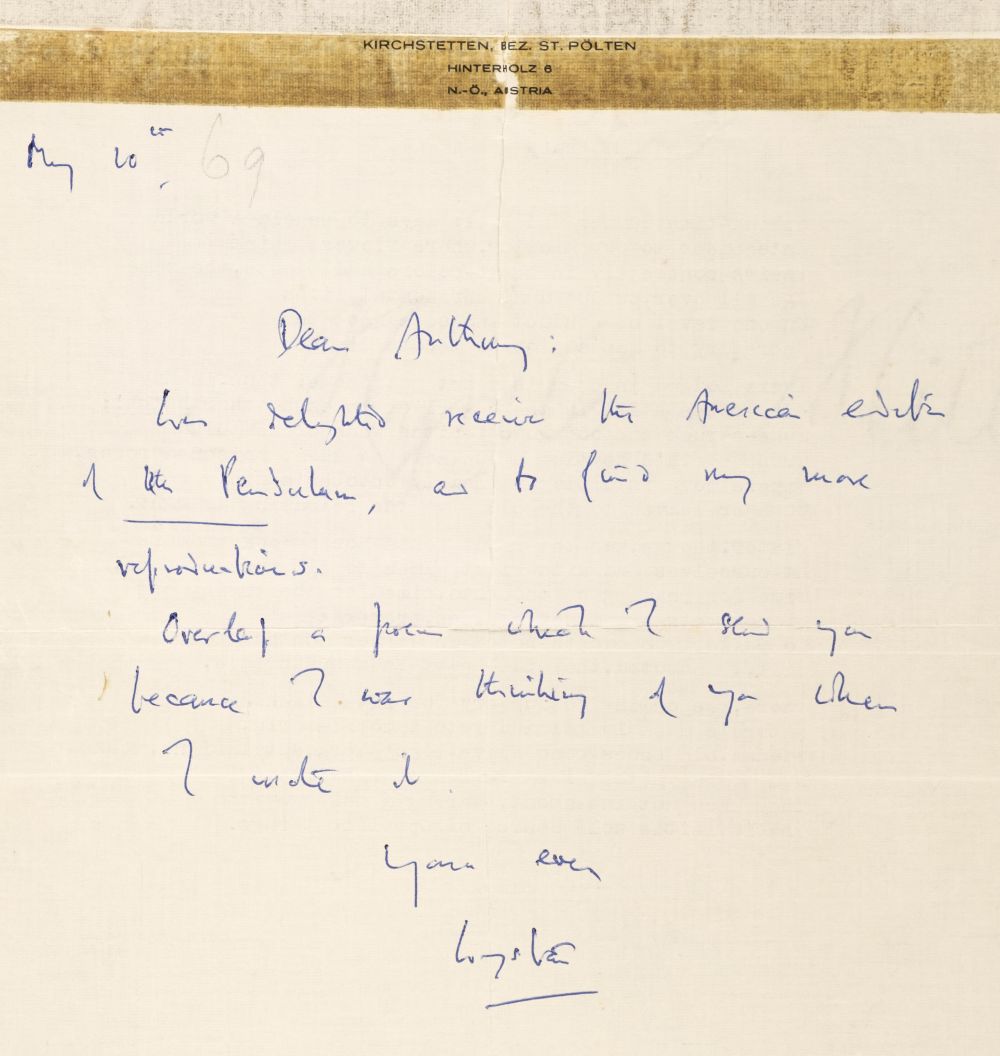
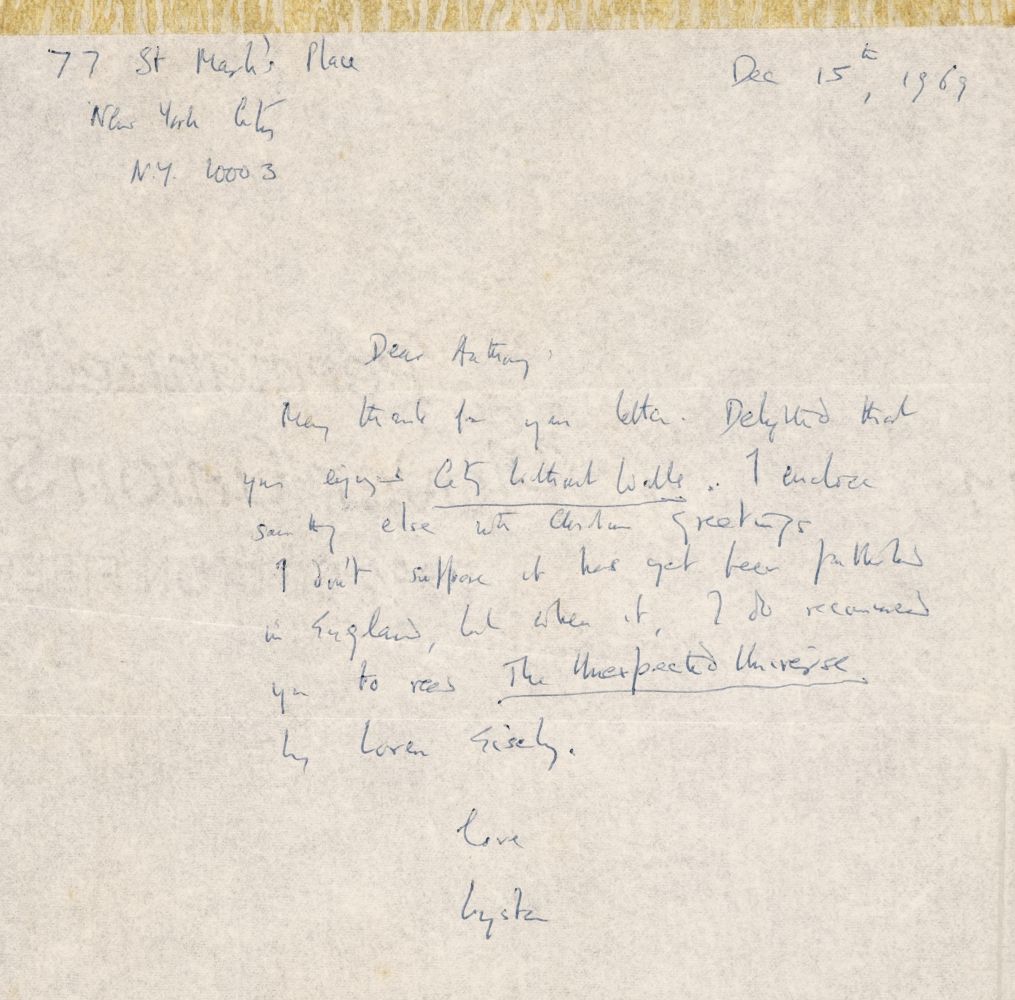

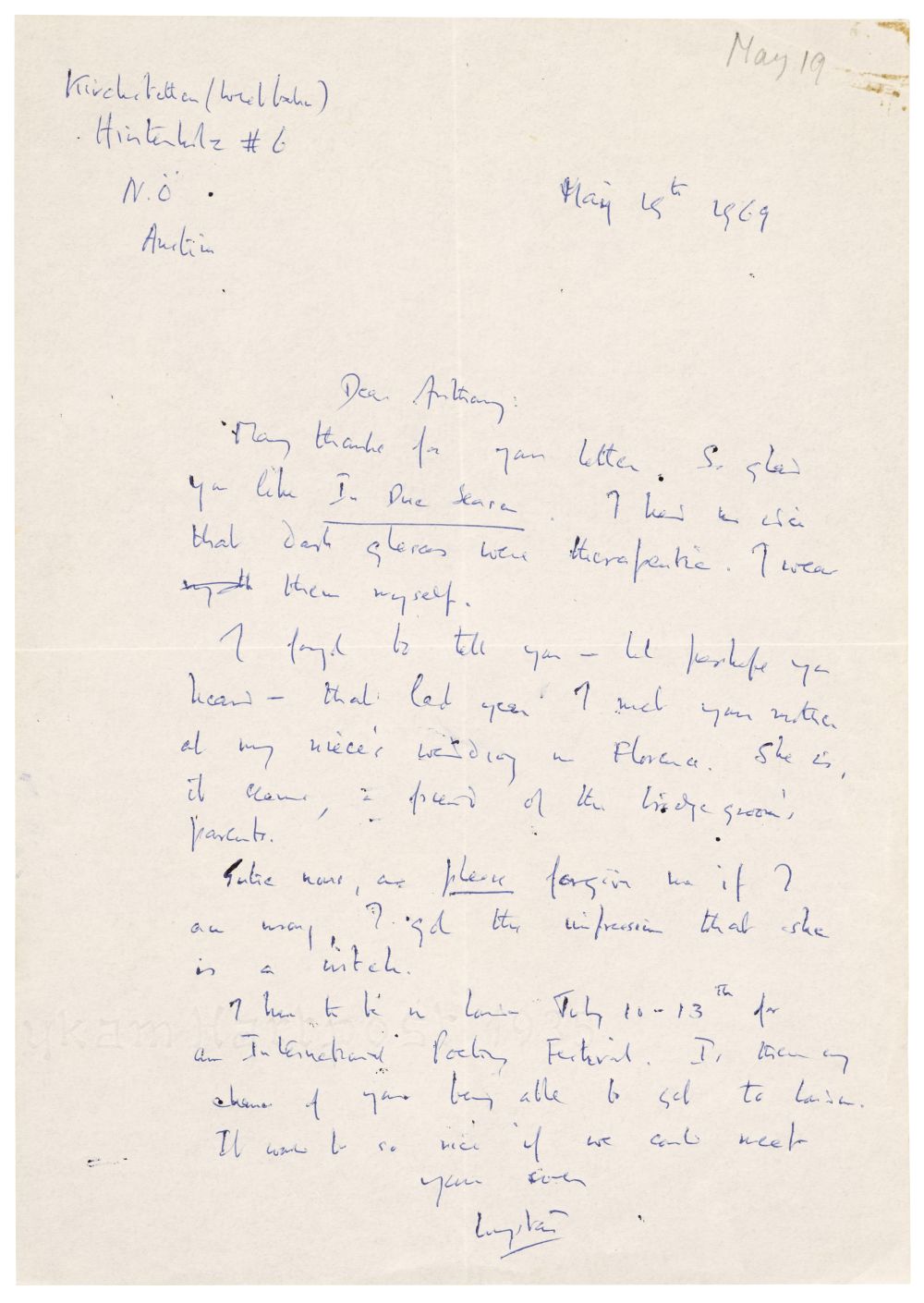
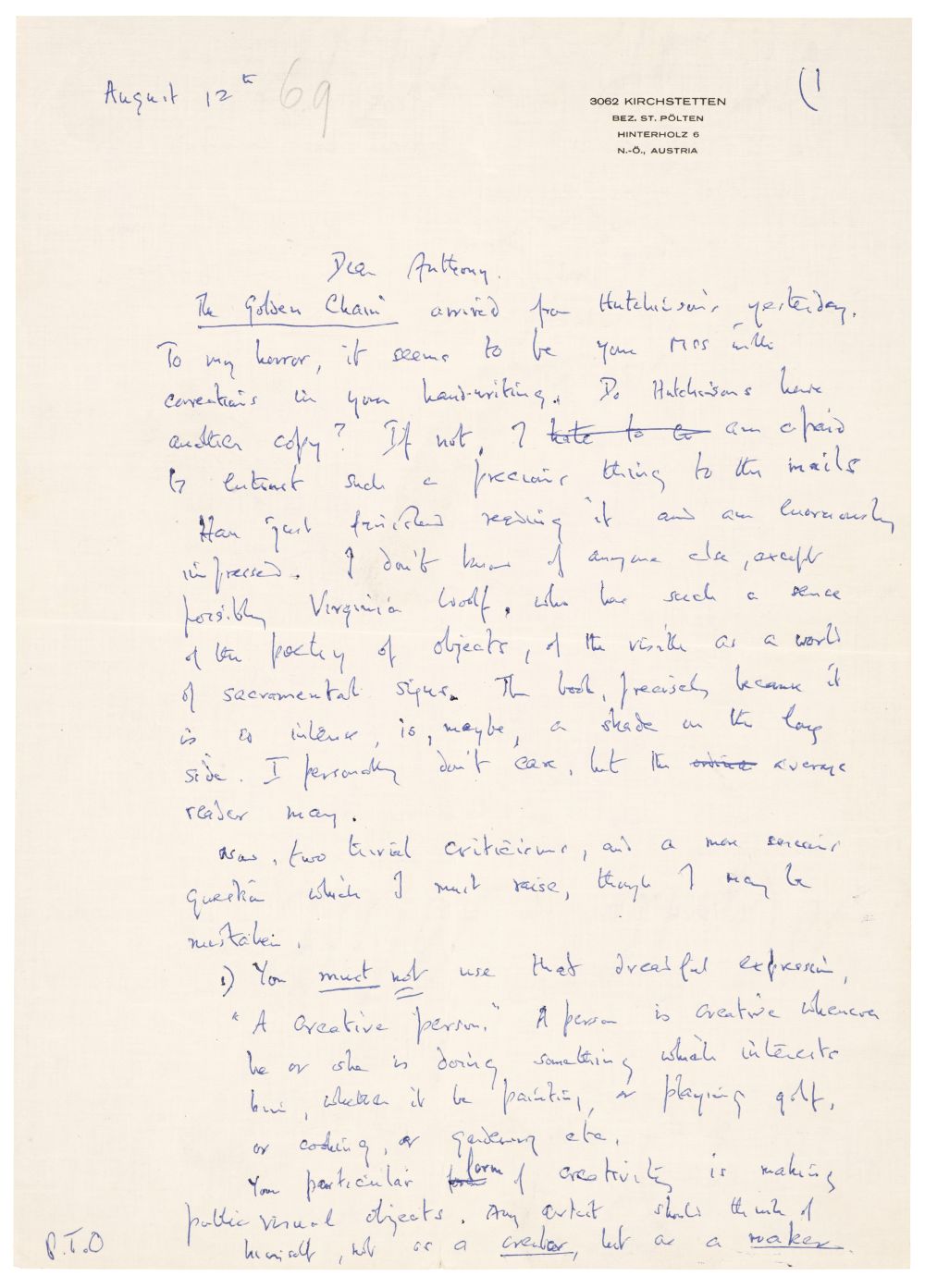
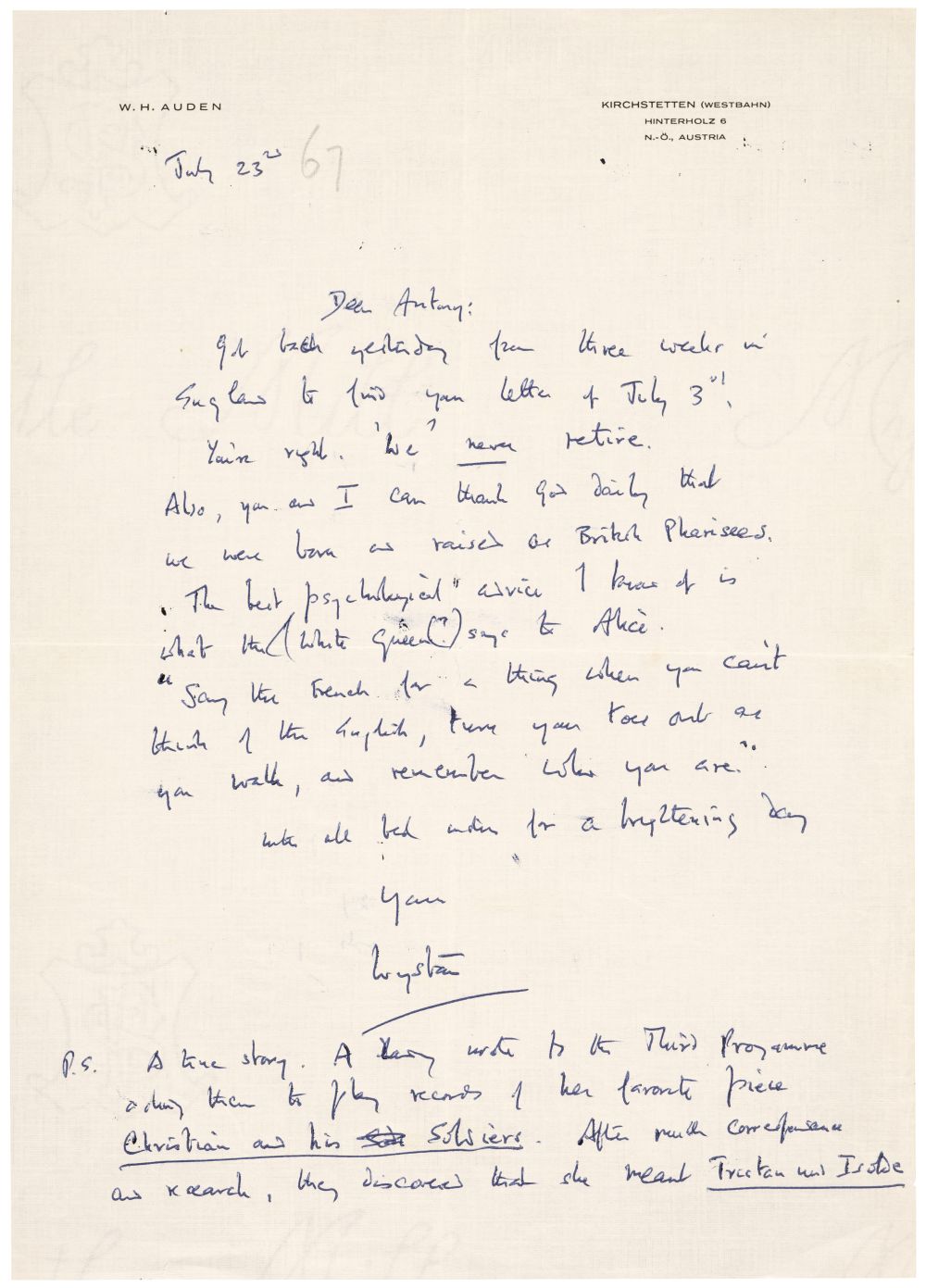
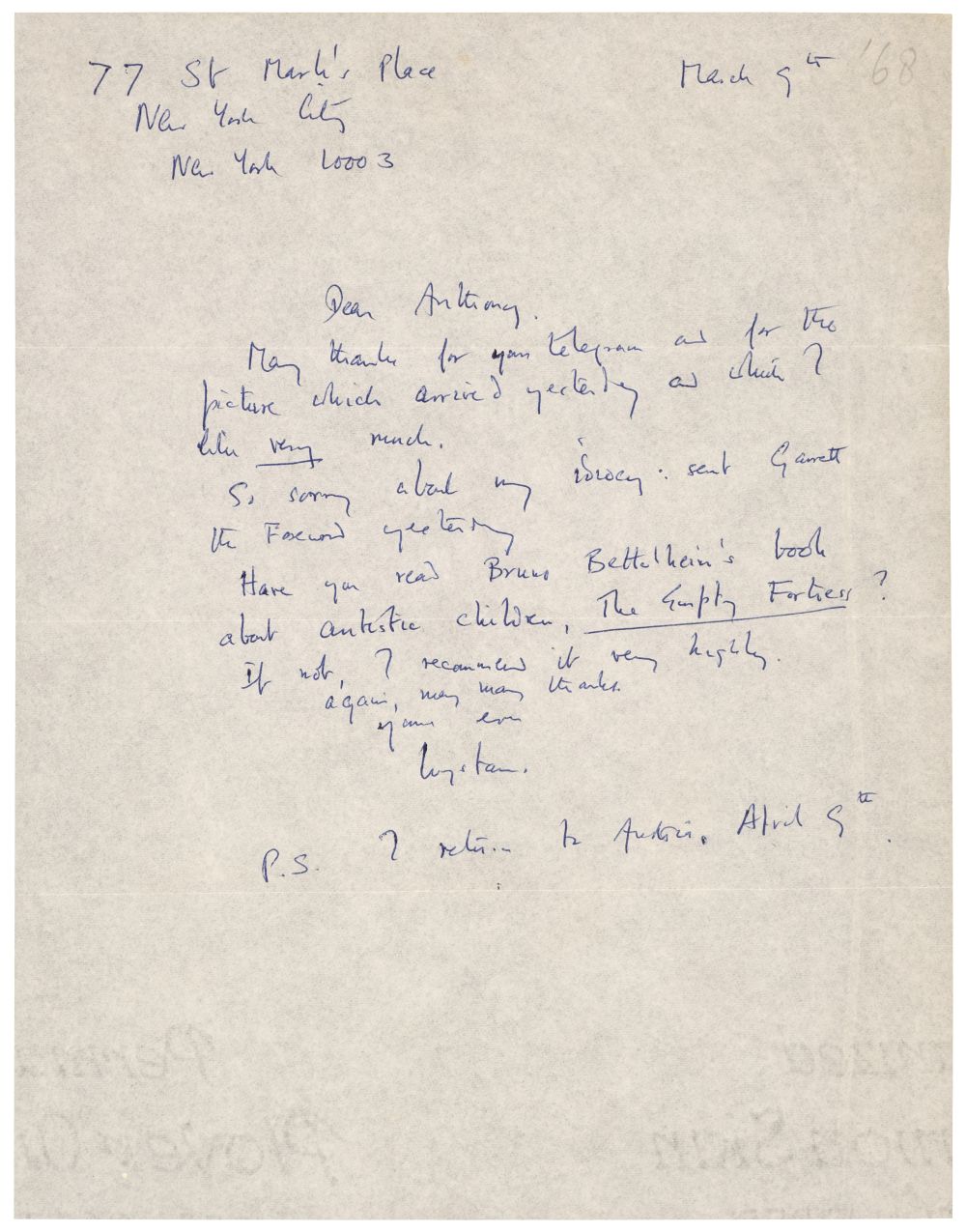
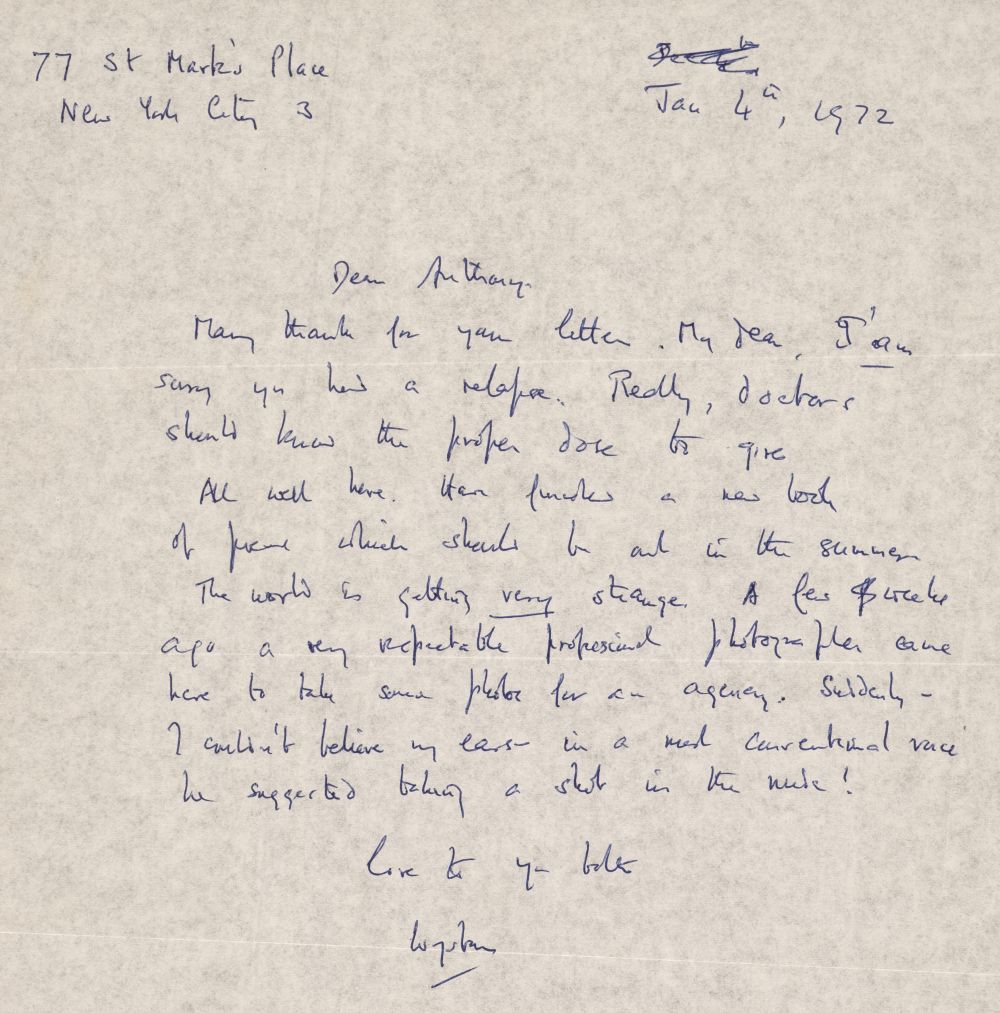

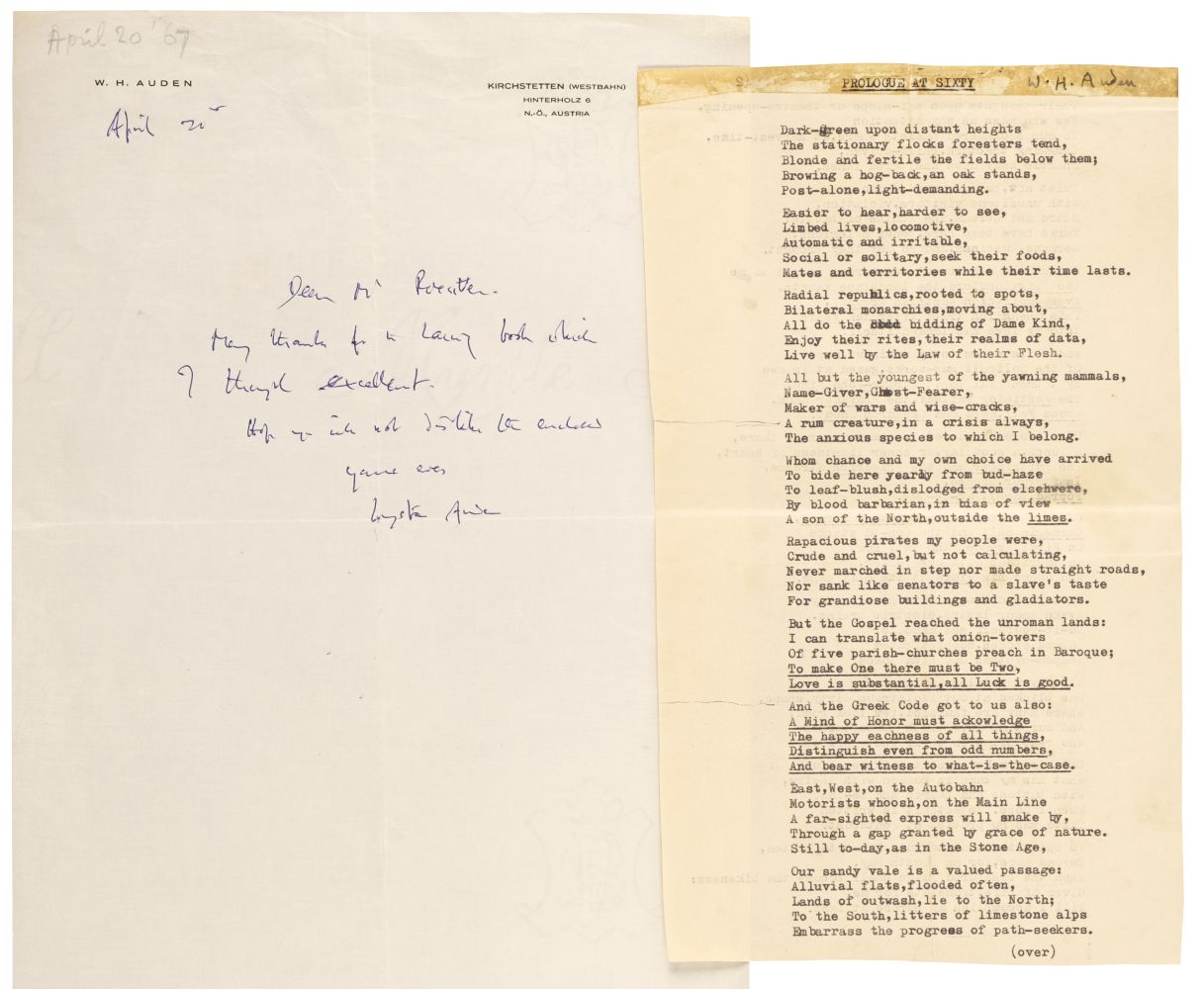

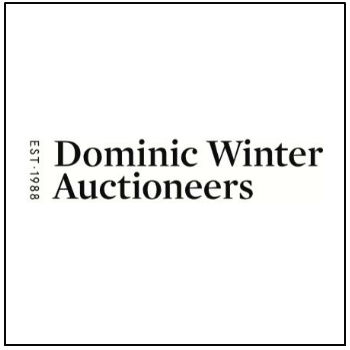
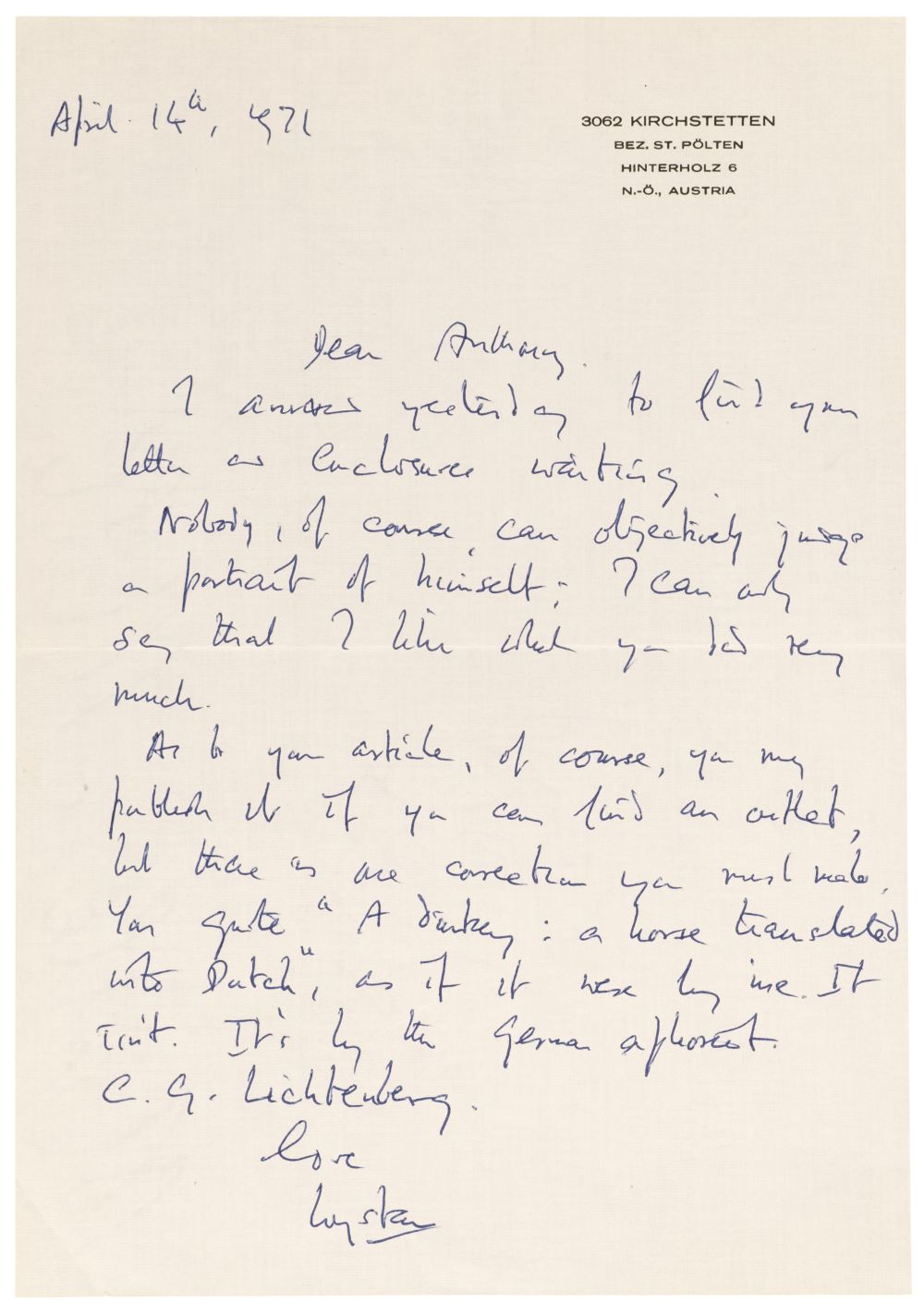
Testen Sie LotSearch und seine Premium-Features 7 Tage - ohne Kosten!
Lassen Sie sich automatisch über neue Objekte in kommenden Auktionen benachrichtigen.
Suchauftrag anlegen